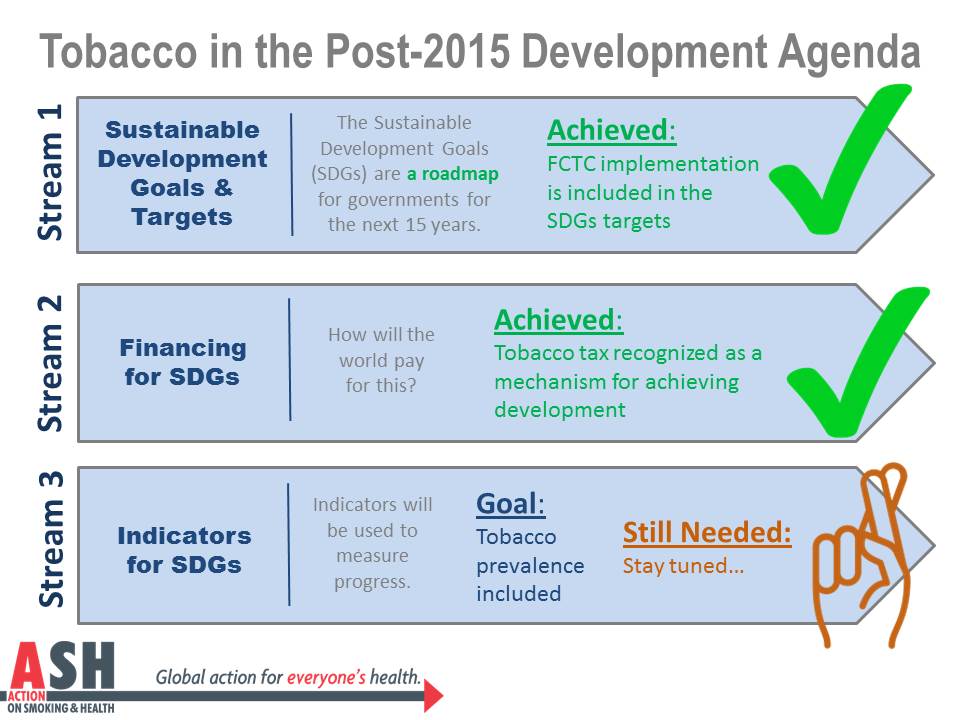When ASH first began its post-2015 UN development agenda campaign in 2013, it was perceived as nearly impossible to integrate tobacco control into the UN Sustainable Development Goals (SDGs), let alone the Financing for Development (FfD) process. At this point, we are on our way to checking both items off of our to-do list.
In September 2015, member states will adopt the new SDGs, and they will go into effect in January 2016. The SDGs include a standalone target to implement the Framework Convention on Tobacco Control (FCTC). This is in part a result of ASH’s leadership at the UN for the last two years. The SDGs also include a target on non-communicable diseases (NCDs), which will benefit tobacco control efforts greatly. 
Overall, the SDGs include a whole host of indicators that will be used to measure the SDGs’ goals and targets. The most recent proposed list includes an indicator on tobacco use prevalence among persons 18 years and older. We will work to protect this proposed indicator and push for a second indicator under the FCTC target before they become finalized in March 2016.
The Financing for Development process has been in full force over the past few months at the UN in New York and at the FfD conference in Addis Ababa, Ethiopia this week. Member states have been diligently working to figure out how they are going to pay for the SDGs they created.
We have just learned that world leaders attending the FfD conference in Addis have agreed that “price and tax measures on tobacco can be an effective and important means to reduce tobacco consumption and health care costs, and represent a revenue stream for financing for development in many countries.” They also agreed that Parties will strengthen implementation of the FCTC and support mechanisms to raise awareness and mobilize resources.
In practice, this means that governments should routinely look at the role that their tobacco tax policy might play when they consider how to reach development objectives, including the SDGs. Increasing taxes on tobacco products is one of the most effective ways to decrease consumption. So this inclusion in the SDG financing document is a victory for public health.
We have made great strides since the beginning of this campaign. Upon finalization of the post-2015 agenda, we hope to see a huge impact on global tobacco control at the national level.
Increasing taxes on tobacco products could save governments enormous amounts of money on tobacco-related health costs and could save millions of lives!
Here’s to more progress in global tobacco control around the world for the next 15 years!
##
Full Text from Financing For Development Conference in Addis